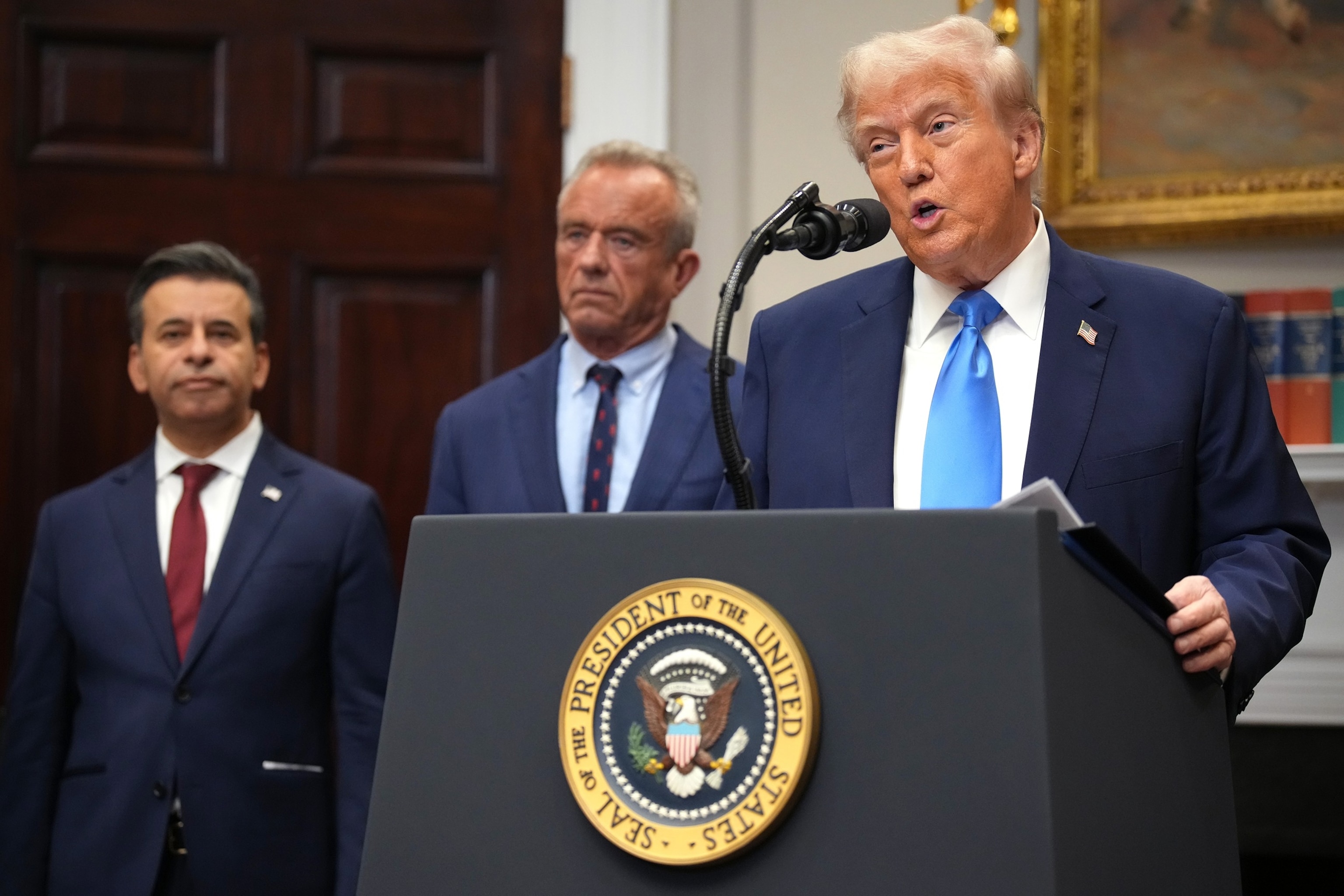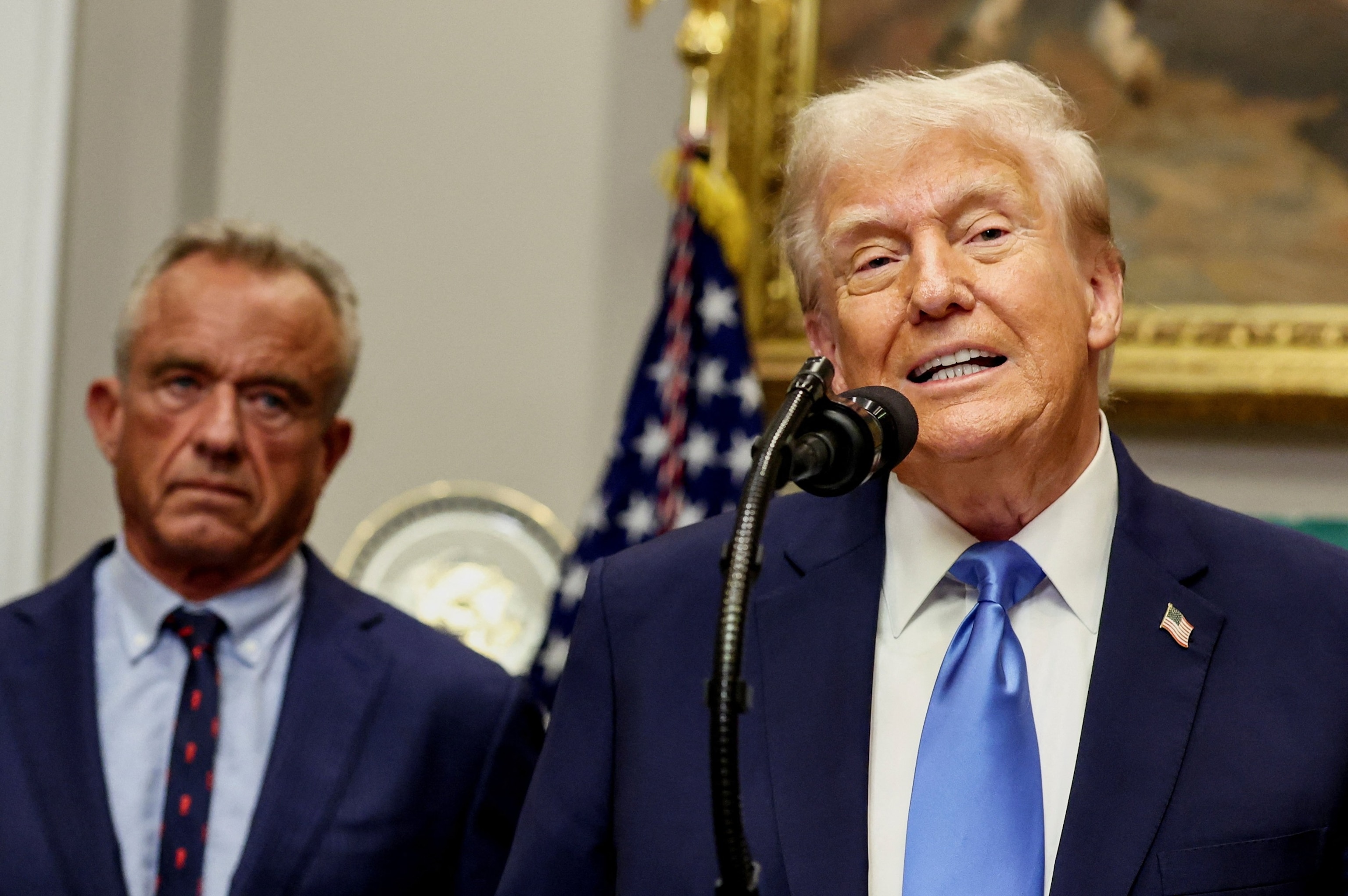

During a press conference about Tylenol and autism risks, President Donald Trump repeated multiple inaccurate claims about a range of topics.
On Monday, Trump, joined by top administration officials, claimed the use of Tylenol during pregnancy may be linked to an increased risk of autism and that pregnant women should limit their use, contradicting medical evidence.
ABC News has evaluated some of the president's statements.

This is a common anti-vaccine talking point. Studies have identified and diagnosed autism in Amish children along with other conditions, according to the International Society for Autism Research (INSAR). Also, not all Amish families decline regular childhood vaccinations, according to a study done by Science Direct.
While Autism rates indeed appear lower among Amish communities, experts say this is likely due to factors like limited healthcare access and cultural attitude leading to underreporting - not because these conditions are absent in these communities, experts say.
In a statement to ABC News, the White House reiterated that "rates of autism among Amish children is lower than that of non-Amish children."
It is not accurate that children get this many shots, nor is it accurate that children get an inappropriately large volume of vaccine.
Children get roughly 30 vaccine doses before the age of 18, excluding flu and COVID, according to the current Centers for Disease Control and Prevention pediatric vaccine recommendations. In recent years, the number of additives and ingredients in vaccines has been decreasing, doctors have explained.
The implication that children's immune systems get overwhelmed by vaccinations is not accurate, doctors say. Children's immune systems are exposed to many new bacteria and germs every day.
The vaccine schedule is recommended based on dosing and protecting young children at certain times in their development of their lives. Certain vaccines need to be given multiple times to build up immunity; meanwhile, certain diseases are more dangerous to younger children. Other vaccines are timed to offer community protection before children go off to school.

In a statement to ABC News, the White House said, "The American childhood vaccine schedule calls for substantially more vaccinations than the vaccine schedules of comparable wealthy nations such as Denmark."
No studies in people have shown that Tylenol (acetaminophen) directly causes autism. Some studies show a possible link, other studies show no such link, but all existing studies stop short of showing cause-and-effect.
One of the lead researchers of a major Harvard analysis showing an increased risk said in a statement, "Further research is needed to confirm the association and determine causality."
Meanwhile, fever during pregnancy is known to have serious risks, including a higher risk of stillbirth and miscarriage, according to the National Library of Medicine.
Alison Singer, president of the Autism Science Foundation, said, "No new data or scientific studies were presented or shared. No new studies have been published in the literature. No new presentations on this topic were made at scientific or medical conferences. Instead, President Trump talked about what he thinks and feels without offering scientific evidence."
"The best quality evidence does not show that acetaphetamine causes autism," Jessica Steier, president and founder of Unbiased Science, told ABC News, "There have been dozens of studies that have investigated this."
No studies have shown any link between autism and giving Tylenol to young children, despite Trump's repeated assertion that young children should not receive Tylenol. One large analysis of multiple studies found no link between giving acetaminophen after birth and autism or ADHD in children.
Steier said that at this point, there is no evidence of any causal link between acetaminophen use in kids and autism.
"Genetics plays the largest role in autism likelihood, followed by environmental factors during pregnancy, and parental age," she said. "It is unlikely that factors after birth have a significant impact on autism likelihood."
During Monday's presser, Trump suggested there should be major changes to the current recommendation of vaccinating all newborns against hepatitis B, explaining that it is a sexually transmitted disease.
He said, "I would say, wait until the baby is 12 years old and formed."
Hepatitis B can be transmitted sexually, but it can also be transmitted from mother-to-child during pregnancy, according to the World Health Organization. That is why current CDC guidance suggests infants are vaccinated in the hours after birth. If not vaccinated, a hepatitis B infection can lead to liver disease and liver cancer.
In a statement to ABC News, the White House said, "Babies born to mothers who do not have HepB do not receive any immediate health benefits from HepB vaccination upon birth."But experts refute that characterization.
"Pediatricians know firsthand that children's immune systems perform better after vaccination against serious, contagious diseases like polio, measles, whooping cough and Hepatitis B. Spacing out or delaying vaccines means children will not have immunity against these diseases at times when they are most at risk," Dr. Susan Kressly, the president of the American Academy of Pediatrics, said in a statement.
ABC News' Dr. Jamie Parkerson contributed to this report.
